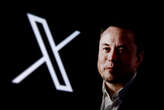For years, young people were supposed to be a bastion of progressivism, the fearless luminaries saving older generations from their chosen demagogues. But, in 2024, four in 10 young people voted for Donald Trump.
The stragglers here are young men, who broke for Trump en masse. Early estimates have Trump up 14 points among men 18-29. That might be shocking; after all, young men have voted blue consistently in previous elections, only descending to single-digit Democratic support in 2022.
But the truth is, young men are in a political crisis. As a college student, I see it every day: Men my age are increasingly contained by their media bubbles, wrapped up in disregard for the political system and devastating economic outlooks. Pundits love to lament sociological issues like the “masculinity crisis,” which certainly exists for some. But, on the ground, it looks like young men have lost their faith in democracy and, in turn, the Democratic party. Simply put, they stopped caring.
How young men gave up on politics
Over the past four years, I’ve watched the young men around me increasingly disavow themselves from politics. Some of them had policy-oriented reasons, like American support of the war in Gaza. Most, though, simply began feeling like legislators did nothing at all. Almost no one in my generation is talking about Joe Biden’s Inflation Reduction Act, or Trump’s string of long-tailed executive orders. For many, the last significant policy change (outside of some landmark Supreme Court decisions) is still the Affordable Care Act, which happened about 14 years ago.
Meanwhile, the current era of heightened political theater is starting to feel customary. Remember that most young men grew up in the years following Trump’s ascendance. The last non-Trump Republican on a presidential ticket, Mitt Romney, ran when I was nine years old. For older generations, there’s still a certain shock factor to MAGA eccentrics, thinking back to the era of Republican puritanism. For young people, it’s all they know.
That’s not to say all young Trump voters are merely disillusioned; many fervently support his policies and beliefs. But, even just four years ago, there was a stronger culture of shame and abandonment. Young Democrats set themselves as fixtures of morality, demonstrating to their peers how a Trump win over Biden would fundamentally hurt them. Now, many of the blue voters around me are more muted. During the 2020 election, when I was in high school, liberal students began canvassing before they were even old enough to vote. This year, many were reluctant to post “I Voted” stickers on their Instagram Story.
Media bubbles made Trump a young man’s friend
While apathy grew, media bubbles shrank. While older generations lament diminished trust in the news media (indeed, it’s at an all time low), many young people have disengaged from the news media altogether: 39% of young adults told Pew Research Center that they get their news from TikTok. Thanks to social media-crushed attention spans, it’s rare that I hear of young people reading at all. “I read somewhere” has become parlance for “I saw a TikTok.” When I see my classmates open The New York Times in class, it’s almost always to play the crossword.
Meanwhile, social media news is regulated by highly specialized algorithms. Liberals online love to complain that these Trump voters are all incels, radicalized by a hatred of wokeness and a love of Andrew Tate. They’re not exactly wrong: Hypermasculine threads still cloud Reddit and 4chan, and Jake Paul is still throwing punches. But it’s also oversimplified. Many young conservatives aren’t steeped in the darker sides of the internet, but merely withheld from pressing political information. If you signal to TikTok that Kamala Harris’s campaign updates aren’t of interest, it won’t feed you them.
Where these young “bros” truly fell for Trump, then, was in friendlier spaces. Appearances on podcasts from Mark Calaway, Andrew Schulz, Theo Von, Adin Ross, and Lex Fridman made Trump seem more human. He wasn’t the violent insurrection-starter of late 2020; he was a laid-back guy talking wrestling. On TikTok, Trump moved from threatening to funny, with compilations of his most humorous moments racking up millions of likes.
And then, the biggest get: Trump’s appearance on The Joe Rogan Experience. Many older liberals scoffed at the episode, opting to fixate on a gaff around his election denialism. But, among my own generation, I only heard positive things. I wasn’t surprised on Tuesday night when NBC News showed a long line of MAGA hats at Arizona State University; some of those students said that the Rogan episode had tipped their vote.
A bubbling economic fatalism
While pundits—myself included—attempt to break down the sociological dynamics of this voter bloc, we cannot ignore the underlying economic tension. Young people are wounded by the state of the economy. I’ve seen my grocery bill go up in the past few years, something more difficult to stomach on a college budget. With skyrocketing home prices, much of my generation has resigned ourselves to never being able to afford a home.
Harris had strong economic plans, too. She offered an expanded child tax credit, down payment assistance plan, increased tax deductions for startup costs, and the list goes on. And Biden didn’t exactly crush the economy, either: Real GDP is up, unemployment is down, and the threat of inflation is almost neutralized. But neither of these came through in the campaign’s branding, which focused more on saving democracy and “not going back.” Whether we like it or not, Trump was the economy candidate in this election cycle.
Back in July, Tim Walz called Trump “weird,” a viral diss that helped land him the Minnesota governor a spot on the Democratic ticket. But for so many Gen Z men, Trump wasn’t weird; he was someone who talked to their favorite influencers and podcasters. That made him something of a peer—even if ultimately a false one.









No comments